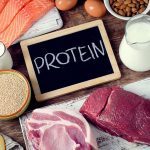Ginkgo Biloba

For long, ginkgo has been used to improve cognition and it’s a treatment for erectile dysfunction.
Various analyses of the leaf extract indicated that the biflavones promote blood circulation in patients with cardiovascular cases. These compounds are thought to inhibit thrombin – an important clotting promoter in humans.
Separate research says ginkgo acts as a blood thinner by releasing prostaglandins and nitrous oxide. Nitrous oxide is an important vasodilator. [9] [10]
Vitamin E

Tocopherol or Vitamin E is a fat-soluble vitamin obtained primarily from diet. Its antioxidant abilities have been extensively studied so are blood-thinning properties.
Evidence about the role of vitamin E as a blood thinner is equivocal.
For instance, this research says vitamin E may reduce the risk of venous thromboembolism (formation of blood clots in the vein) in women. Similarly, this research linked reduced incidence and mortality from heart-related issues to consumption of vitamin E.
Notwithstanding, evidence from clinical trials doesn’t support its potency. A clinical trial that included over 14,000 US male physicians ruled out the benefits of vitamin E supplements in heart issues.
A different clinical trial among middle-aged women who took 600 IU of natural vitamin E casts doubt on the relevance of the vitamin in cardiovascular health. The authors concluded it had no overall benefits.
However, there is a caveat. The clinical trials involved old and middle-aged people and further research is needed to unravel its effect in young people.
By the way, the National Institutes of Health still reports that above 400 IU of the vitamin per day has blood thinning tendencies. However, they warned that it shouldn’t be used with antiplatelet medications and that anything above 1500 units may be harmful.
Vitamin E is present in almonds, sunflowers, peanut butter and whole grains. [11] [12] [13] [14] [15]





